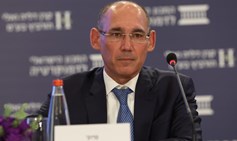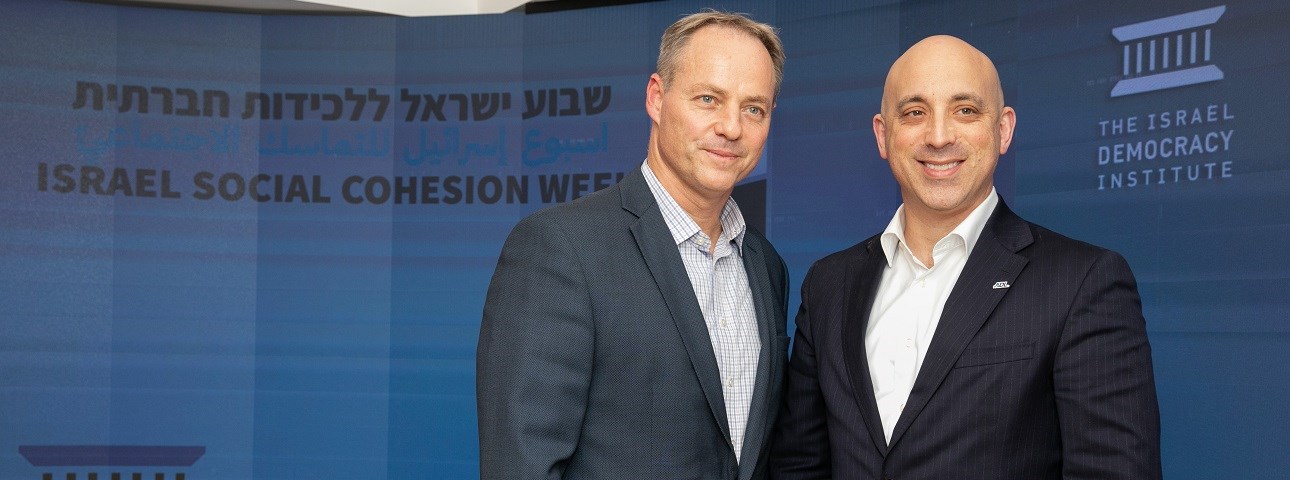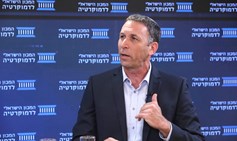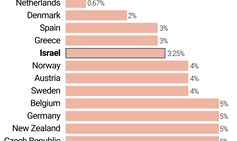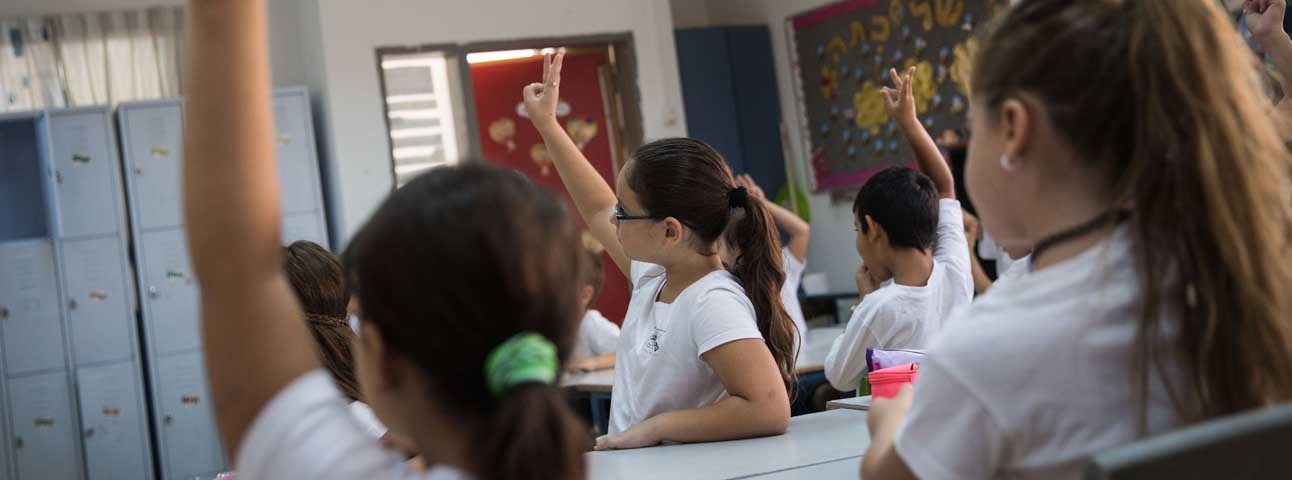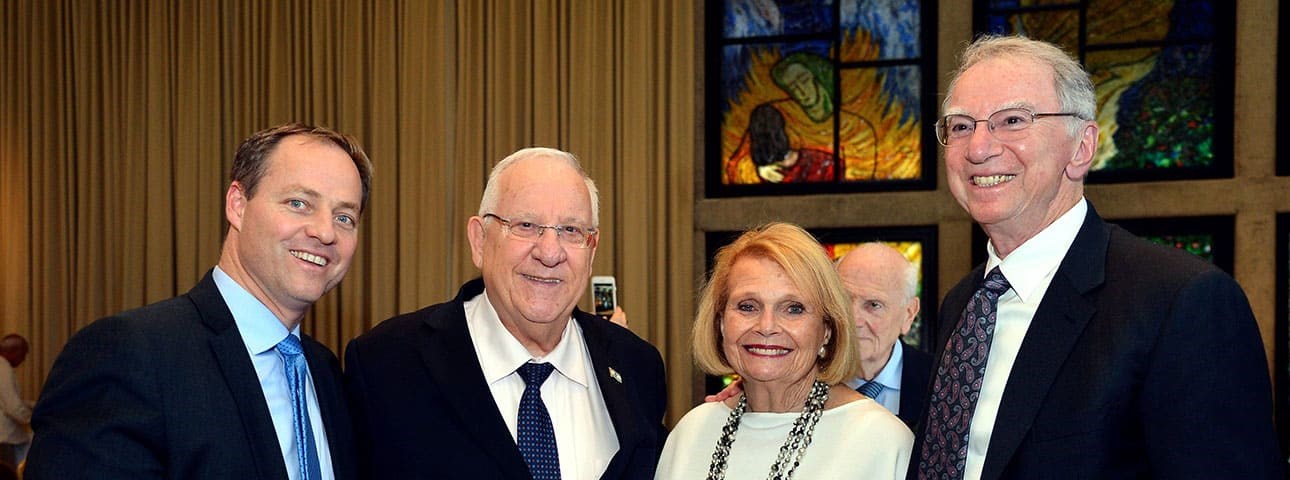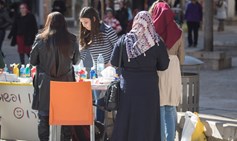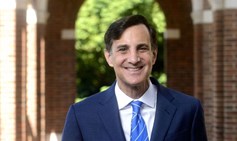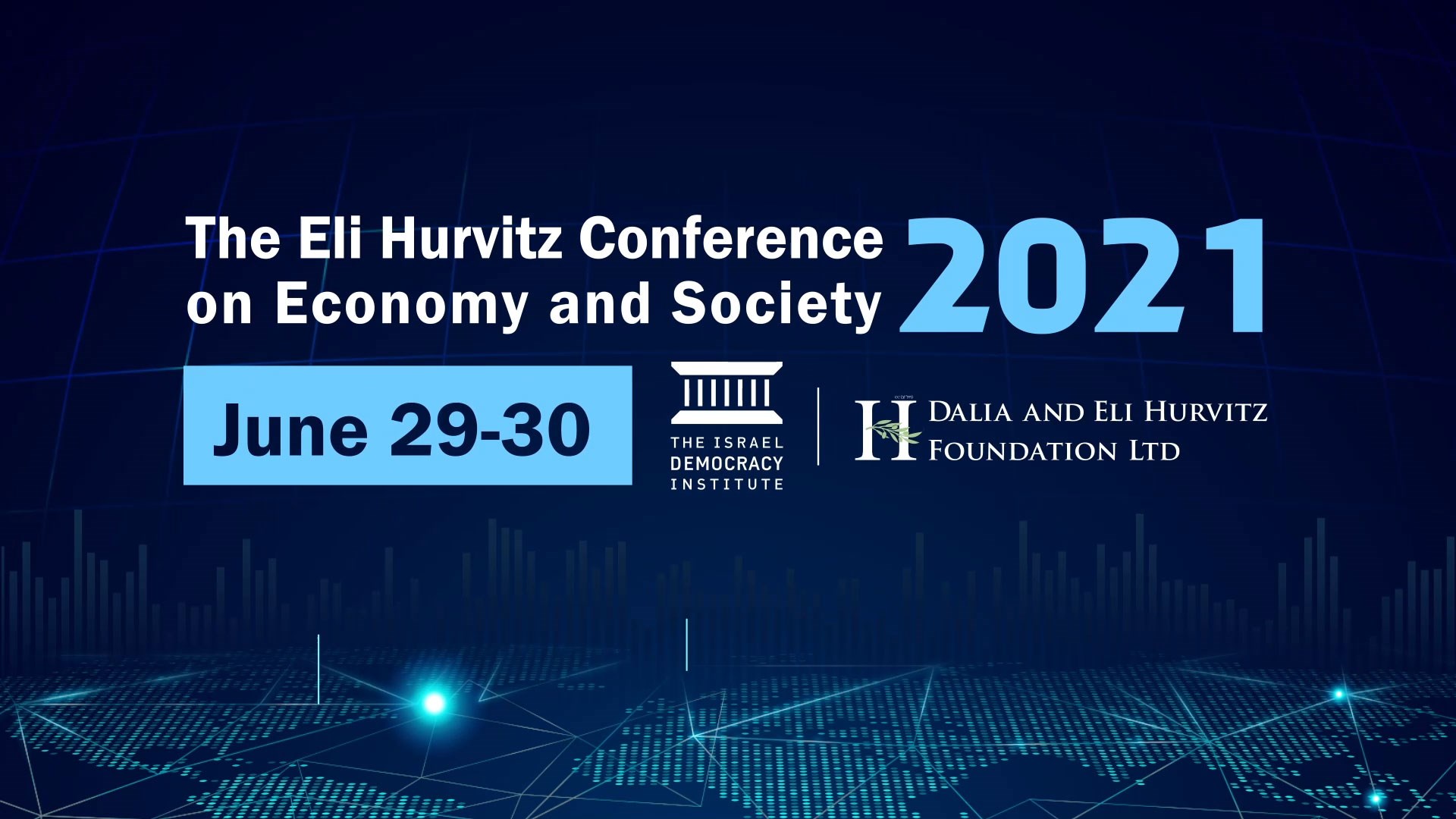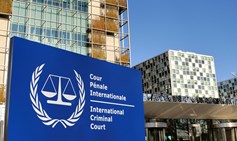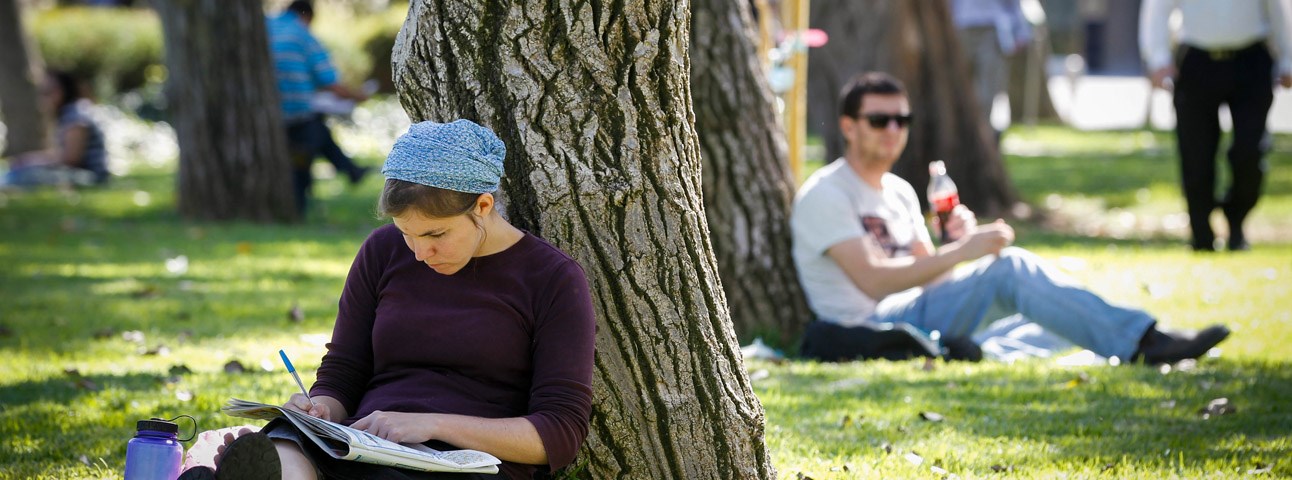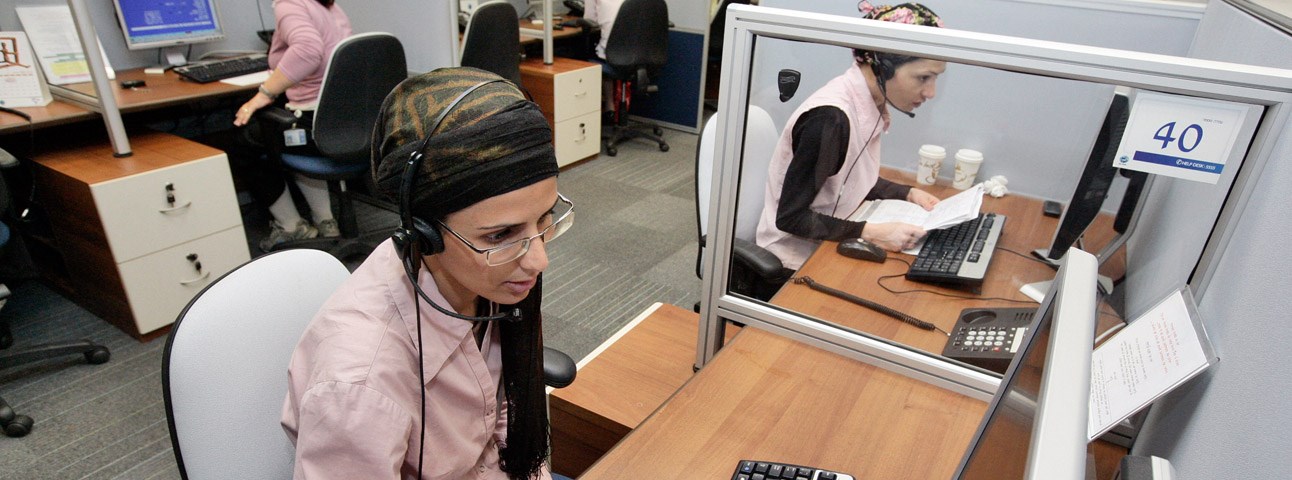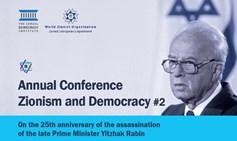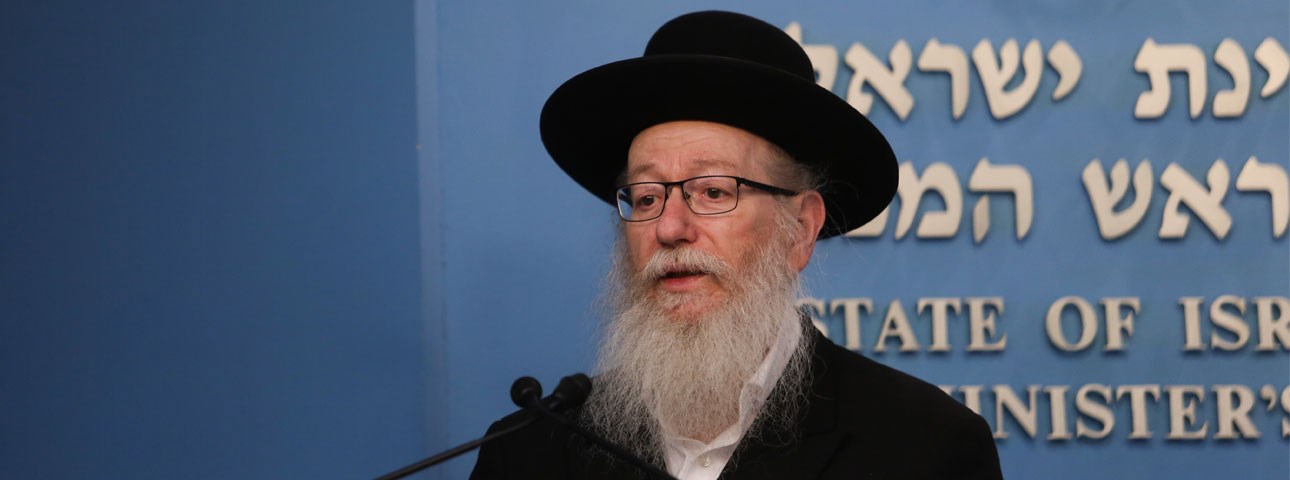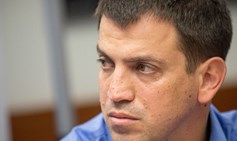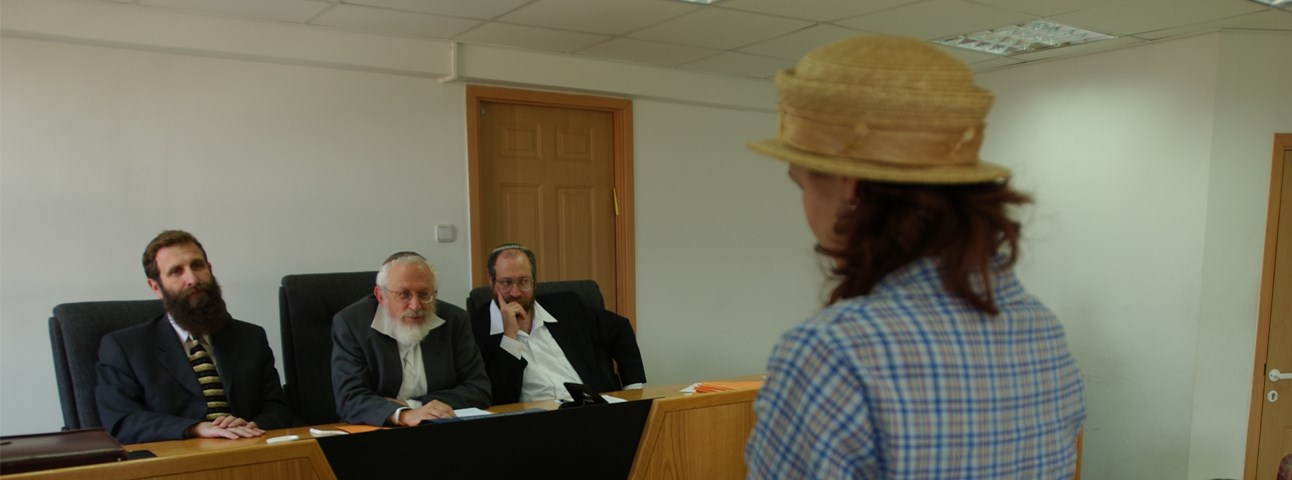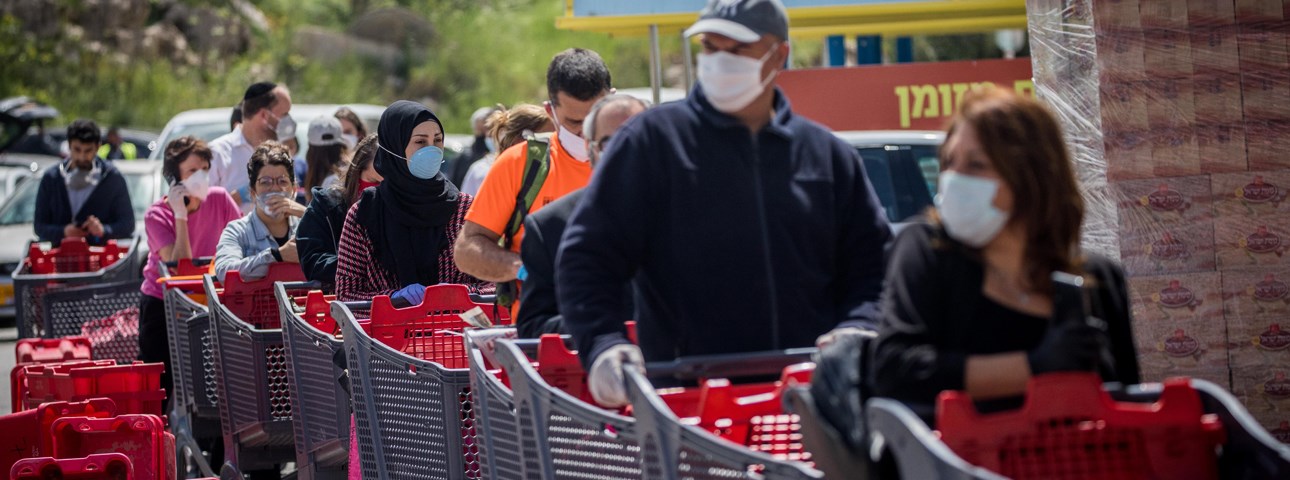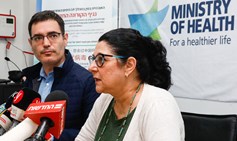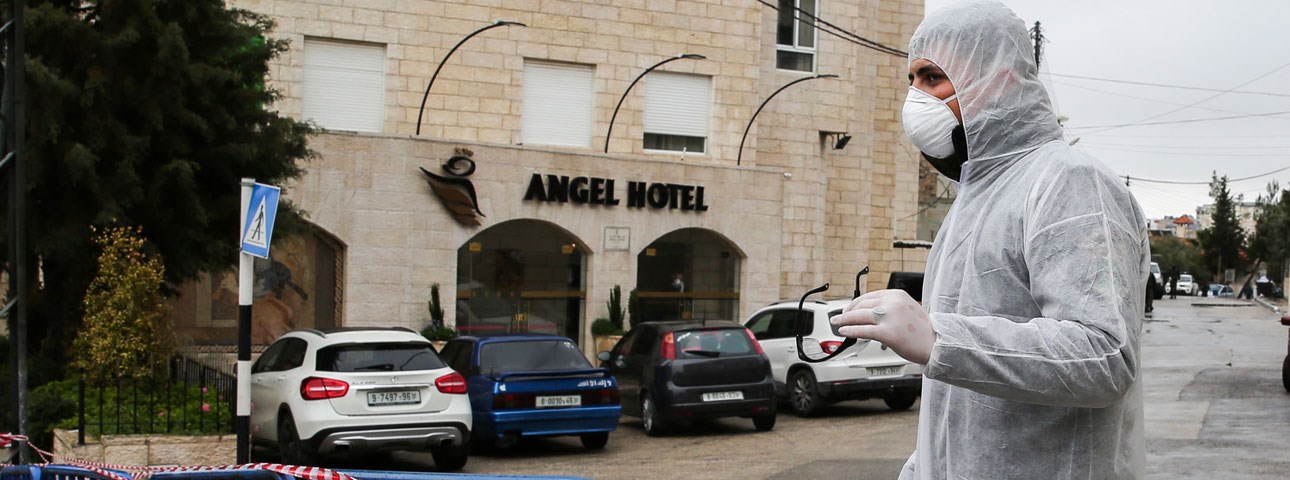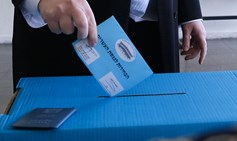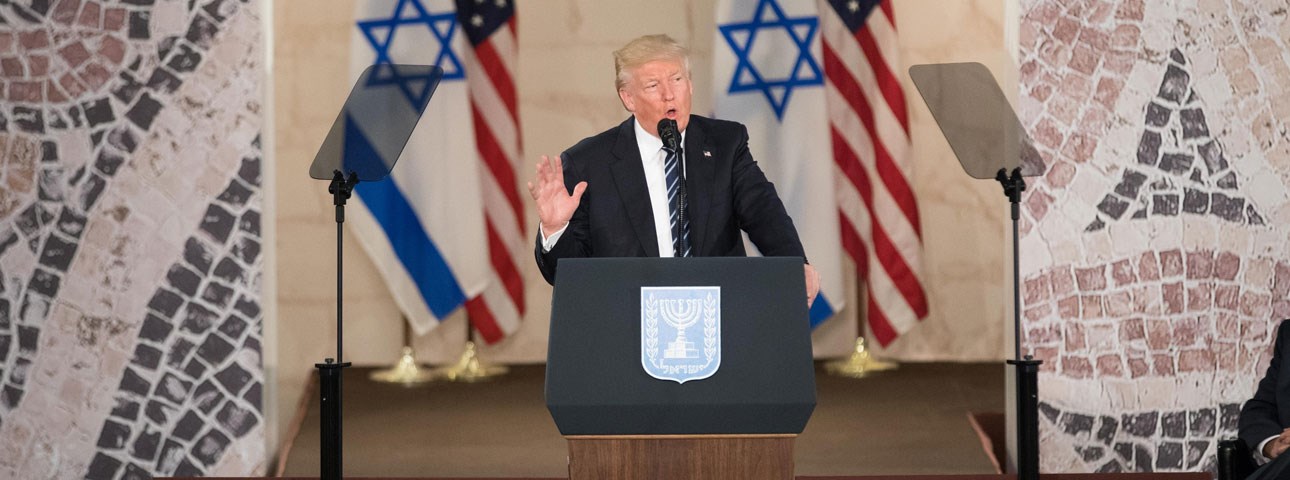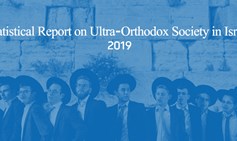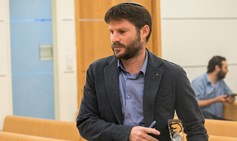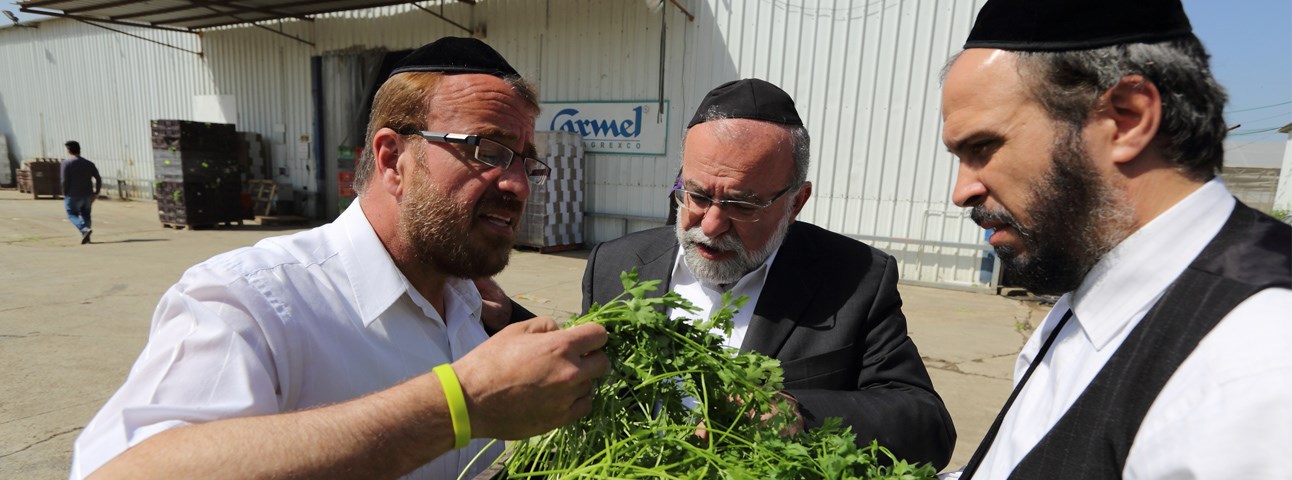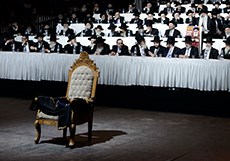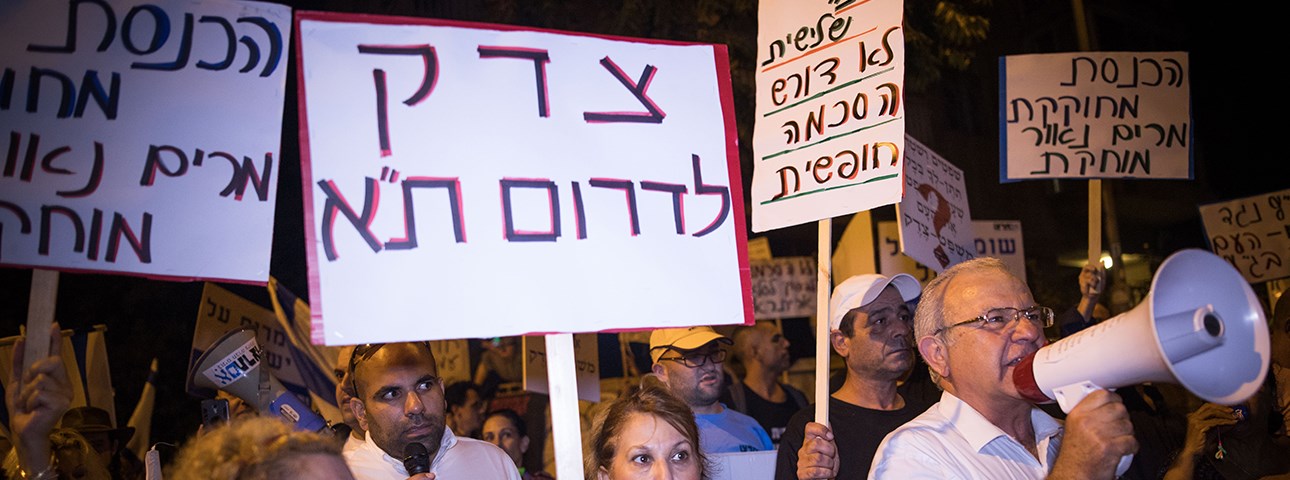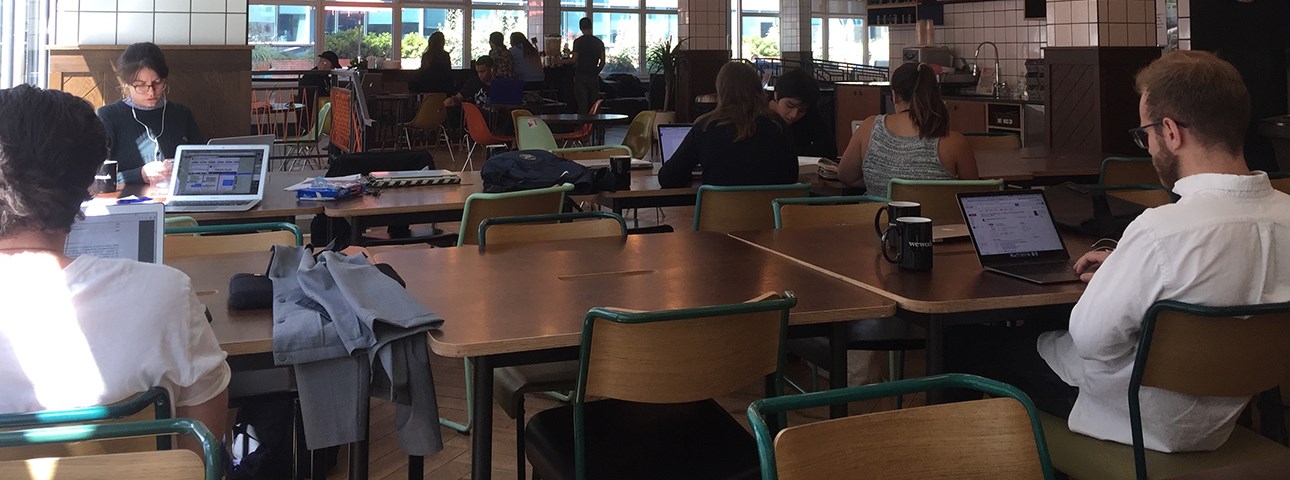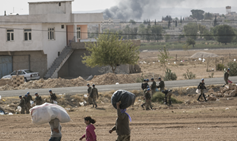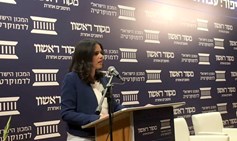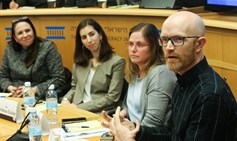Press Room
Releases

- IDI Releases New Survey Findings on Haredim; Convenes Haredi & Arab Leaders to Advanced Shared Society
- The Israel Democracy Institute Publishes its 2024 Israeli Democracy Index
- IDI and the EU Delegation to Israel Convene to Combat Online Disinformation
- Israel's Top Experts in National and Internal Security Convened at IDI Annual Conference on Security and Democracy
- Israelis Think Trump is Better for Israel's Interest
- Eli Hurvitz Conference: Day 2 Morning Sessions
Media Inquiries
Tova Cohen
Director of International Communications
Phone: +972 58-555-1043
Email: [email protected]

Overwhelming Majority of Israelis Think President Trump Responsible for Ceasefire Deal; Think Trump will Pressure Netanyahu to Achieve Middle East Initiatives
Written By: Prof. Tamar Hermann, Dr. Lior Yohanani, Yaron Kaplan, Inna Orly Sapozhnikova
A majority of Israelis think there is a fair or high chance President Trump will exert pressure on Israel if the government in Israel does not align with his initiatives in the Middle East; A large majority (72.5%) also think the release of the hostages was achieved thanks to his intervention.

Israelis Think Trump is Better for Israel's Interest
Written By: Prof. Tamar Hermann, Dr. Lior Yohanani, Yaron Kaplan
IDI conducted a short survey on the Israeli public opinions in relation to the upcoming elections for president in the US. Who do Israelis prefer, Harris or Trump? These are the results.

A Majority of Jewish Israelis See a Hostage Deal as a Higher National Priority Than Military Action in Rafah
Written By: Prof. Tamar Hermann, Dr. Lior Yohanani, Yaron Kaplan
A new survey by the Israel Democracy Institute's Viterbi Center for Public Opinion examined what should be the highest priority in terms of Israeli national interest: military action in Rafah or a deal to release the hostages held by Hamas.

Statement on the ICJ Decision On Provisional Measures
Written By: Prof. Amichai Cohen
Prof. Amichai Cohen, a senior fellow at the Israel Democracy Institute and an expert in international law, made the following comments on the International Court of Justice (ICJ) decision today regarding provisional measures in the case of South Africa v. Israel on the Application of the Genocide Convention.

Flash Survey: More Israelis are optimistic about the country's future despite being at war
Written By: Prof. Tamar Hermann, Dr. Or Anabi
Despite being at war, more Israelis are optimistic about the future of the country than earlier this year, yet most Israelis (64%) fear for their physical safety or that of their immediate family members.

The High Cost of Living in Israel
Written By: Daphna Aviram-Nitzan, Prof. Itai Ater, Nadav Porat Hirsh
40% of Israelis aged 25–44 cited the high cost of living as the issue that concerns them most. 80% of them have had to give up one or more item of expenditure, particularly leisure activities and vacation in Israel and abroad, and about 30% have refrained from buying basic items, food, or cars.

Israeli Work Life Post Covid
Written By: Daphna Aviram-Nitzan, Yarden Kedar, Roe Kenneth Portal
New survey of Israeli workers reveals changes in levels of satisfaction post COVID pandemic: Most workers in Israel are satisfied with their work-life balance, despite the fact that half of them work more than their official number of hours; around a third report difficulty with functioning in family life

Only a Minority of Israelis Support the Proposed Judicial Overhaul
Written By: Prof. Tamar Hermann, Dr. Or Anabi
66% of Israelis: Supreme Court should have power to strike down laws that are incompatible with Israel’s Basic Laws | On Judicial Selection Committee: 63% Support Current Principle Requiring Agreement between Politicians and Justices.

20th Edition of the Israeli Democracy Index
Written By: Prof. Tamar Hermann, Dr. Or Anabi, Yaron Kaplan, Inna Orly Sapozhnikova
The Index finds that over past decade: significant decrease in the rate of optimists regarding the future of the country and a decline in public trust in state institutions | Among Jewish Israelis: 85% Place Trust the IDF | Only 8.5% Trust Political Parties

Majority of Israelis are Dissatisfied with PM Netanyahu’s Handling of Coalition Negotiations
Written By: Prof. Tamar Hermann, Dr. Or Anabi
Additionally 51.5% think that Israel’s standing in the international community will worsen now that the new government has taken office and 48% think that the civil status of Arabs in Israel will deteriorate.

80% of Ultra-Orthodox Women Participate in the Workforce - 2022 Statistical Report on Ultra-Orthodox Society in Israel
Written By: Dr. Gilad Malach, Dr. Lee Cahaner
The seventh annual report on ultra-Orthodox society in Israel found that in 2021 78% of ultra-Orthodox women and 51% of the men participate in the workforce; preliminary reports show a slight improvement in the first three quarters of 2022 - 80% and 53% respectively. In addition 44% of the ultra-Orthodox in Israel live in poverty
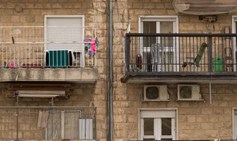
Working Remotely Opens a Window of Opportunity in Housing
Written By: Daphna Aviram-Nitzan
Dafna Aviram-Nitzan, Director of the Center on Governance and the Economy at the Israel Democracy Institute notes that “The option for working remotely opens up a window of opportunity for purchasing housing in the peripheral areas of Israel”

Jewish Israelis and the IDF in 2022 - A Special Survey
Written By: Prof. Tamar Hermann, Dr. Or Anabi, Dr. Eran Shamir-Borer, Prof. Amichai Cohen, Dr. Idit Shafran Gittleman
Ahead of the annual 2022 National Security and Democracy IDI published a special survey to examine the views of Jewish Israeli on a series of issues relating to their relationship with the IDF and the country’s security challenges. The survey found that while there is wide support for opening the ranks to women in combat units and a large plurality would prefer that their children serve in the IDF’s technological units.

Inaugural Biennial Statistical Report on Religion and State in Israel
Written By: Dr. Ariel Finkelstein, Ayala Goldberg, Adv. Shlomit Ravitsky Tur-Paz
IDI’s inaugural Biennial Statistical Report on Religion and State was published ahead of the annual conference organized by the Religion and State Program in the Joan and Irwin Jacobs Center for Shared Society.

Israel Only Parliamentary Democracy With MPs Serving on Central Election Committee
Written By: Dr. Dana Blander
The study, by Dr. Dana Blander, finds that Israel is the only country where sitting members of parliament serve as members of the body that administers and oversees the elections, without any threshold conditions. The members of Knesset and the other members that are party representatives sitting on the Central Election Committee have the authority to make consequential decisions regarding to the election they themselves are usually competing in - including disqualifying lists and the candidates running against them in the election.

Israel’s Future Labor Market will Further Widen Gaps Between Jews and Arabs and Reduce Gender Gaps
Written By: Prof. Yotam Margalit, Gabriel Gordon, Zak Hirsch
A new study by IDI experts Prof. Yotam Margalit, Gabriel Gordon and Zak Hirsch finds that the Israeli Economy is transitioning towards occupations in which the main tasks require high analytical abilities and to a lesser extent interpersonal abilities. Occupations which mainly require routine-physical abilities are diminishing rapidly

60% of Israelis Back the Government’s Policy on the Russia-Ukraine Conflict - Special Survey
Written By: Prof. Tamar Hermann, Dr. Or Anabi, Yaron Kaplan, Inna Orly Sapozhnikova
The Israel Democracy Institute's Viterbi Family Center for Public Opinion and Policy Research published a special survey on the stances of Israelis on Russia’s invasion of Ukraine and issues related to the conflict. The survey included both native-born Israelis and immigrants from the former Soviet Union – and found that 60% of Israelis back the government’s policy on the conflict and a large minority (44%) support absorbing refugees regardless of nationality

Employment Incentives for the Haredi Community are a Mix of ‘Carrots’ and ‘Sticks’
Written By: Dr. Gilad Malach
Finance Minister Liberman’s employment incentives for members of the ultra-Orthodox (Haredi) community are a "mix of ‘carrots’ and ‘sticks’ and could encourage members of the Haredi community to join the labor market - however elements of the plan could also expand the existing trend of part-time employment.

Ministry Adopts IDI's Investor's Regulatory Roadmap
Written By: Daphna Aviram-Nitzan
IDI welcomed the adoption of its recommendations by Interior Minister Ayelet Shaked who announced the implementation of the Investor's Regulatory Roadmap Report, first published at IDI’s 2018 Eli Hurvitz Conference.
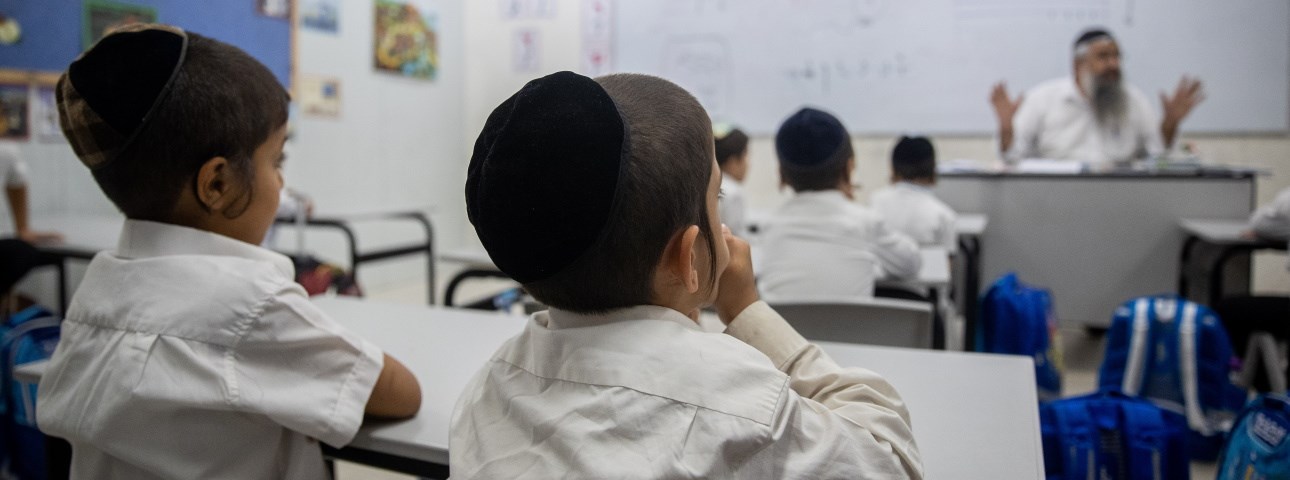
Dramatic Rise in the Number of Sexual Abuse Cases Treated by Social Service Departments in Ultra-Orthodox Local Authorities
Written By: Dr. Ariel Finkelstein
Growing willingness to report sexual abuse in ultra-Orthodox society: The last two decades have seen a dramatic rise in the number of cases of sexual abuse or violence against children treated by social service agencies in ultra-Orthodox local authorities, where today- the rate of abuse is higher than in other local authorities
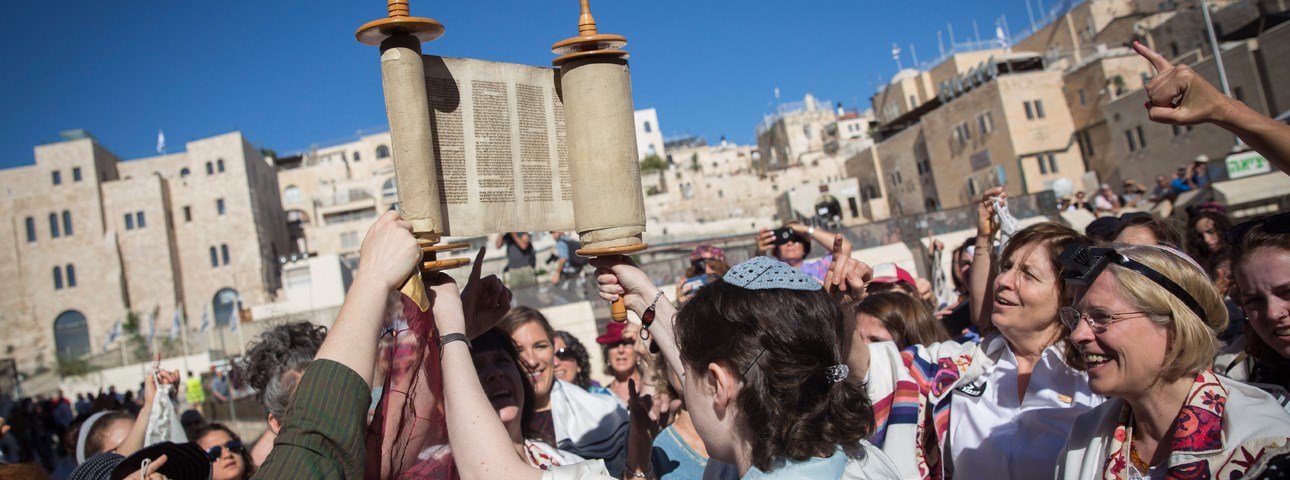
Kotel Compromise Must Be Honored
Written By: Yohanan Plesner , Adv. Shlomit Ravitsky Tur-Paz
The friction and hostility we witnessed today at one of Judaism's holiest sites is unacceptable and could have been avoided if the previously agreed upon 'Western Wall Compromise' had been honored.

Lowering the Age of Exemption will Lead Thousands of Haredim into the Labor Force
Written By: Yohanan Plesner , Dr. Gilad Malach
Congratulations to the Bennett government on approving the outline for lowering the age of the students exempted from service in the IDF to 21. This is a vital and necessary step that the Israel Democracy Institute has recommended in recent years. A kind of necessary evil that will lead in the short term to the entry of about 5,000 ultra-Orthodox into the labor market and thousands more in the coming years.

Should Israeli Colleges Insist on Coed Classrooms?
Written By: Dr. Gilad Malach
Dr. Gilad Malach is interviewed on Kan Radion on a recent Supreme Court ruling allowing institutions of higher learning to have separate classrooms for men and women and what the implications will be for the integration of the ultra-Orthodox into Israeli society.

IDI Experts: MK Zohar is Exceeding His Authority as Chair by Refusing to Convene Arrangements Committee
Written By: Prof. Yuval Shany, Prof. Mordechai Kremnitzer, Dr. Amir Fuchs, Dr. Nadiv Mordechay
The decision not to convene the Arrangements Committee prevents the Knesset from conducting itself as a legislative body and performing its oversight duties

Israel Barring Entry to its Own Citizens in COVID Clampdown
Written By: Prof. Yuval Shany, Prof. Mordechai Kremnitzer, Dr. Amir Fuchs, Dr. Guy Lurie, Dr. Nadiv Mordechay
Setting sweeping restrictions on Israeli citizens’ ability to return to the country from overseas is extremely problematic from a constitutional perspective and is without parallel in the democratic world
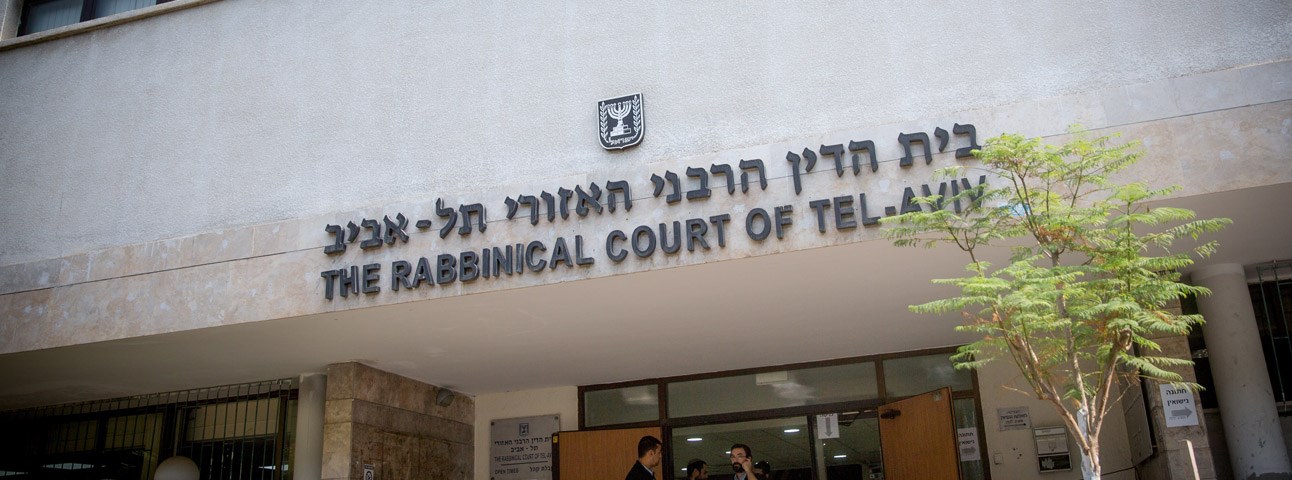
1/3 of Complaints against Rabbinical Judges in Israel are Justified
Written By: Dr. Ariel Finkelstein
A new study by IDI expert Ariel Finkelstein presents a detailed and systematic analysis of the conduct of Israel's rabbinical courts - finds 30% of complaints categorized as: "Violation of the Principles of Natural Justice"
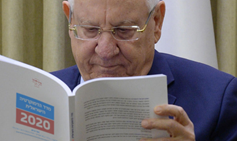
IDI's 2020 Democracy Index: Public Trust, Social Solidarity and Democracy in Danger
Israeli Democracy Index 2020 reveals the lowest point in a decade in the public's trust in all public institutions and government officials—particularly in the Knesset and the Supreme Court – as well as major erosion of the public’s sense of social solidarity.
From Top Down to Bottom Up
Written By: Dr. Tehilla Shwartz Altshuler, Dr. Rachel Aridor-Hershkovitz
Israel Democracy Institute Experts to the Chair of the Foreign Affairs and Defense Committee: “The only way to return to normal routine is through regulation and by encouraging the use of locally-developed apps in malls, workplaces and in educational institutions"
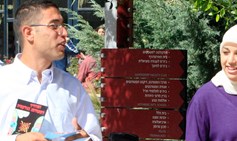
Arab Students at Higher Risk - Survey
Written By: Dr. Nasreen Haddad Haj-Yahya
Upon the opening of the new academic year a special national survey conducted by the Israel Democracy Institute and the Aharon Institute for Economic Policy found 22% of Arab students are considering quitting or taking a break from their studies, compared to 10% of Jewish students.

Haredim Lose Faith in their Political Parties
Written By: Dr. Gilad Malach
Ultra-Orthodox communities have been very critical of their political leaders for not advocating vigorously enough on their behalf at the beginning of the COVID crisis. Now, the ultra-Orthodox parties are at the forefront of the contentious demand to permit mass travel to Uman.

IDI Releases 2019 Democracy Index
Written By: Prof. Tamar Hermann, Dr. Or Anabi, Dr. William Cubbison, Ella Heller
50% of Israelis Believe that the State of the Country is 'Good'. Conversely: 58% of Israelis Believe that Their Leadership is Corrupt and 59% of Israelis Think that Supreme Court Judges’ Rulings are Politically Biased

Repealing Law to Dissolve the Knesset: Motivated by Personal Interests
Written By: Prof. Yuval Shany, Dr. Amir Fuchs, Dr. Guy Lurie, Prof. Ofer Kenig
The proposal promotes personal and political interests, strikes a severe blow to the public’s trust in democracy and to elected officials’ obligation to act with integrity
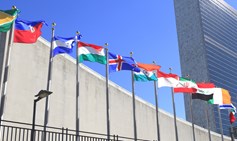
UN Commission Report on Gaza – Response
Written By: Prof. Yuval Shany, Colonel (Res.) Dr. Liron A. Libman, Prof. Amichai Cohen
The report and its conclusions, regardless of whether or not they will be acceptable to the State of Israel, once again highlight the importance of the rule of law, and bring to the fore the need for in-depth investigations of events which might be construed as in violation of international law

Response to A-G's Announcement to Indict PM Netanyahu Pending a Hearing
Written By: Yohanan Plesner , Prof. Yuval Shany
Yohanan Plesner, President of the Israel Democracy Institute, and Prof. Yuval Shany, Vice President of Research "No democracy can tolerate public corruption or any exception to the principle of equality before the law."

2018 Statistical Report on Ultra-Orthodox Society in Israel
Written By: Dr. Gilad Malach, Dr. Lee Cahaner
IDI’s 2018 report on ultra-Orthodox society is out - shedding light on changing trends in population, education, employment, and leisure in the ultra-Orthodox community in Israel.

Israeli Democracy Index 2018
Written By: Yohanan Plesner , Prof. Tamar Hermann, Ella Heller, Dr. Or Anabi,
The majority of the public (53%) sees Israel’s situation in a positive light and is proud to be Israeli (88% of Jews and 51% of Arabs);
For the first time the #1 tension in Israeli society is the tension between Right and Left; Israel ranks high on international indicators of political participation
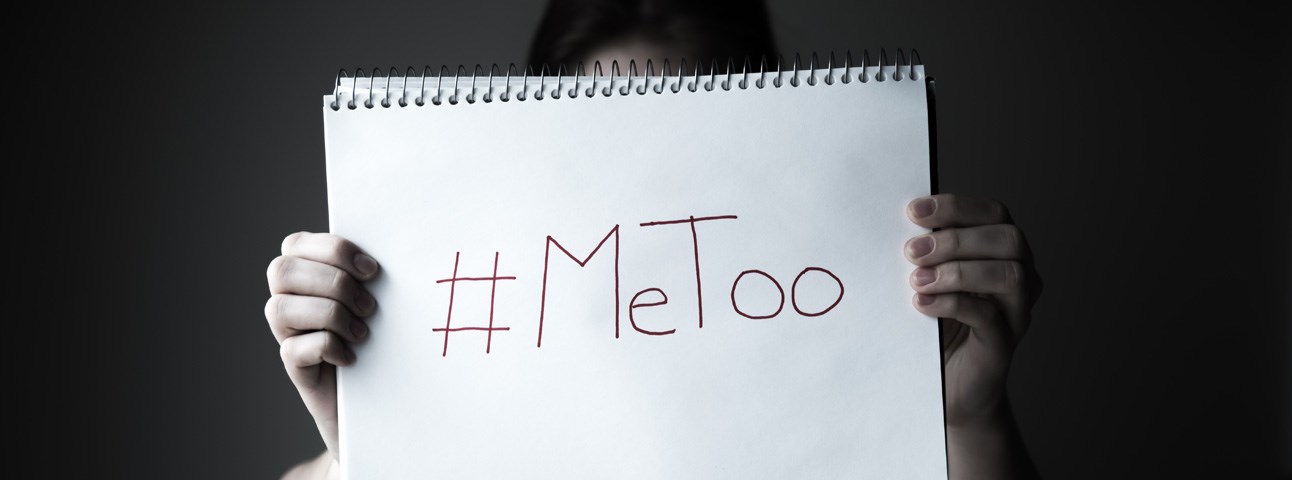
Is It a Very Scary Time for Young Men?
Written By: Prof. Tamar Hermann, Prof. Ephraim Yaar
The monthly Peace Index of the Israel Democracy Institute and Tel Aviv University finds that: 44% of Jewish and Arab Israelis agree with President Trump’s statement that “It’s a very scary time for young men” – the percentage among men who agreed was significantly higher than that among women.

If Meitav's Website Was Hacked - the Breach Was Almost Inevitable
Written By: Dr. Tehilla Shwartz Altshuler
The breach of IDF’s Meitav website was almost inevitable, in light of inadequate attention to the need to protect sensitive personal information and the lack of supporting legislation in Israel.

The Decision to Halt Work on the Sabbath on the Ayalon Bridge – a Farce
Written By: Dr. Shuki Friedman
- “The decision is questionable. If the government is really interested in avoiding desecration of the Sabbath, and in ensuring a day of rest, it should focus its energy on stopping the illegal work currently being performed on the Sabbath, which according to reports by the Ministry of Industry, Trade and Labor, is rarely done.

60% of Israelis Think the New Nation-State Law Should Have Included ‘Equality'
Written By: Prof. Tamar Hermann, Prof. Ephraim Yaar
The monthly Peace Index of the Israel Democracy Institute and Tel Aviv University, published today, finds that: only 52% of Jewish Israelis think it was important to pass the Nation-State law at this time.
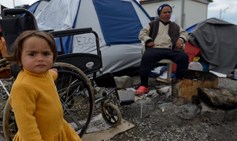
The Majority of Israelis Favor Providing Syrian Victims of War with Humanitarian Aid
Written By: Prof. Tamar Hermann, Prof. Ephraim Yaar
On the northern front: the majority of Israelis favor providing Syrian victims of war with medical aid and food. On the southern front: the majority of Israelis support a military operation if Hamas violates the ceasefire.

The Facebook Bill Must Be Amended so that it Can Serve Its Original Purpose
Written By: Dr. Tehilla Shwartz Altshuler
The Israel Democracy Institute applauds Prime Minister Netanyahu’s decision to reevaluate the Facebook Law which was initially formulated to help fight terrorism, but evolved into a draconian law that could set back the Start-Up Nation decades in terms of freedom of speech.

Letter to the Israeli Government on the Nation State Bill
Written By: Yohanan Plesner , Prof. Yuval Shany, Prof. Yedidia Z. Stern
The Israel Democracy Institute issued a letter to the Prime Minister regarding the Nation State Billl, asserting that if the value of equality is not anchored in the legislation alongside the other enumerated national characteristics of the state, the law may eventually erode Israel's democratic character

Will Trump’s Peace Plan Gain Traction?
Written By: Prof. Tamar Hermann, Prof. Ephraim Yaar
The monthly Peace Index of the Israel Democracy Institute and Tel Aviv University, published today, finds that most Israelis think that Trump’s peace plan won’t gain traction and that the IDF should directly target ‘terror kite’ assailants.

On Political Appointments of Legal Advisers in Government Ministries
Written By: Yohanan Plesner , Prof. Yuval Shany, Prof. Yedidia Z. Stern
The Israel Democracy Institute ahead of the Knesset Constitution Committee debate on political appointments of legal advisers in government ministries: "A blow to the civil service ethos; an opening for potential corruption, forsakes public interest".

Proposed Draft Bill Puts the “People's Army” at Risk
Written By: Yohanan Plesner
Yohanan Plesner, President of the Israel Democracy Institute cautions that the Ministry of Defense’s proposed draft bill “endangers IDF’s model of service as a “People's Army” based on the principle of mandatory service for all

Who Can Declare War on Behalf of the Israeli People?
Written By: Prof. Amichai Cohen
Following the approval of the “Cabinet Law,” allowing the government to delegate its authority to declare war to the National Security Cabinet, IDI Senior Professor Prof. Amichai Cohen, and expert on national security law, contends that the bill addresses a critical issue but has been passed too hastily

The Majority of the Israeli Public Believes Moving the US Embassy to Jerusalem is in Israel's Best Interests
Written By: Prof. Tamar Hermann, Prof. Ephraim Yaar
The Monthly Peace Index of the Israel Democracy Institute and Tel Aviv University published today, found that most Israeli Jews believe that transferring the US Embassy to Jerusalem, despite Palestinian protests, is in Israel’s best interests.

How Many Israelis Keep Kosher for Passover?
Written By: Prof. Tamar Hermann, Prof. Ephraim Yaar
A special update from the Peace Index by Tel Aviv University and the Israel Democracy Institute shows that that two-thirds of the Jews in Israel eat kosher for Passover outside the home and prepare the their house for the holiday - but 58% oppose the ban on cafes and restaurants from serving chametz (bread).

Protecting our Privacy
Written By: Dr. Tehilla Shwartz Altshuler
The Cambridge Analytica scandal raises troubling questions about the colossal amount of personal data now available online. Dr. Tehilla Shwartz Altshuler says that states must take more aggressive action to protect individual privacy and prevent private entities from hijacking elections.

Israelis Support Moving the Embassy to Jerusalem
Written By: Prof. Tamar Hermann, Prof. Ephraim Yaar
61% of the Jewish and Arab public believes that it is very likely that moving the American embassy to Jerusalem for Israel’s 70th Independence Day, will ignite an outbreak of violence. Nevertheless, 69% of the Jewish public think that even in light of the expectation of violence, Israel should not ask the Americans to postpone the move

The proposed Basic Law: Torah Study has far-reaching economic implications
Written By: Yohanan Plesner , Prof. Yuval Shany, Prof. Yedidia Z. Stern
In a letter to the Members of Knesset, IDI's management clarifies that the ultra-Orthodox proposed legislation will influence budgetary matters such as allocations to Yeshiva students and housing grants, and will place Israel’s national security in jeopardy

We expect our leaders to adhere to the highest ethical standards
Written By: Yohanan Plesner
"The facts revealed yesterday by the police are deeply troubling. Faced with this reality, all those who consider themselves leaders in our community, must come forth and make their position clear, rejecting such conduct forthrightly, lest moral decay spreads through our civil service and public’s trust in the government plummets.”

Data Israel
Written By: Prof. Tamar Hermann, Or Anabi, Tzipy Lazar-Shoef
In Honor of Israel's 70th Anniversary The Guttman Center for Public Opinion Research and Policy at the Israel Democracy Institute Is Launching “Data-Israel”: The largest and most encompassing online public opinion research database in Israel at the click of a button.
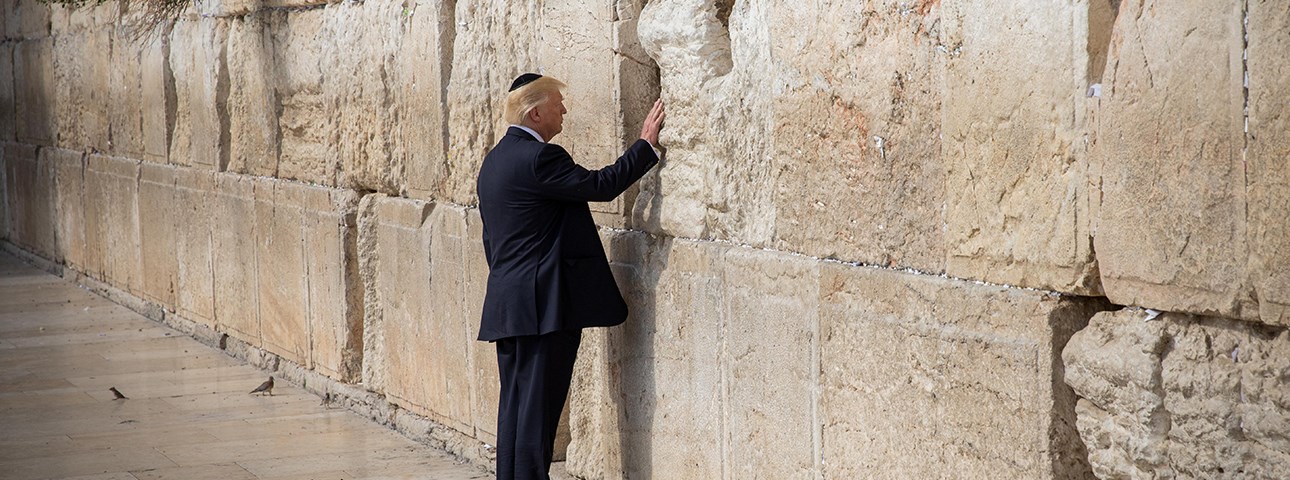
Is President Trump’s public declaration that Jerusalem is the capital of Israel in Israel's best interest?
Written By: Prof. Tamar Hermann, Prof. Ephraim Yaar
In light of President Trump's Declaration on Jerusalem: a large majority of the Jewish public think President Trump’s public declaration that Jerusalem is the capital of Israel was in Israel's best interest; a clear majority (over 60%) of the Israeli public agrees that Jerusalem is already divided into two cities: the eastern city and the western city

Statistical Report on Ultra-Orthodox Society in Israel
Written By: Dr. Lee Cahaner, Dr. Gilad Malach, Dr. Maya Choshen
Israel Democracy Institute and the Jerusalem Institute for Policy Research published today the 2017 Statistical Report on Ultra-Orthodox Society in Israel. The report presents trends in population, education, employment, and leisure in the ultra-Orthodox sector in Israel.

Israeli Democracy Index 2017
Written By: Reuven Rivlin, Yohanan Plesner , Prof. Tamar Hermann
Widespread dissatisfaction with Israel's leadership and institutions; Most Israelis believe Knesset has legislated undemocratic laws and oppose taking powers of judicial review away from Supreme Court; Israelis distrust the media and rely more on traditional media than social media; Israelis are optimistic in their assessment of the overall situation of the country and its future; Israeli citizens rank high in OECD scale on political involvement

Israeli Jews and American Jews: The Uniting Forces are Stronger
Written By: Prof. Tamar Hermann, Prof. Ephraim Yaar
The monthly Peace Index of the Israel Democracy Institute and Tel Aviv University, published today, found that Israelis think that the forces that unite Israeli Jews and American Jews are stronger than the forces that separate them; a significant portion of the public believe that the Prime Minister failed to deal with the Iranian threat; and a significant majority of the public think that the Recommendations Law should not be approved

IDI Scholar on Supreme Court Decision to Allow Supermarkets and Entertainment Establishments to Operate on Shabbat in Tel Aviv
“Instead of devising agreements through consensus on the matter of ‘resting on Shabbat’ as we do on other topics, we have a state of legal and procedural chaos,” explained Dr. Shuki Friedman. “It’s a situation of each man for himself.”

Israel Democracy Institute Scholars on the Proposal to Enable Religious Courts to Arbitrate on Civil Matters: ‘A Good and Balanced Proposal’
Ahead of today’s vote on a bill that would enable religious courts to conduct arbitration with the agreement of both parties, similar to the arbitration that takes place in other frameworks, a policy statement was sent to the Ministerial Committee on Legislation by Israel Democracy Institute’s Dr. Benny Porat.

Professor Eytan Sheshinski joins the Israel Democracy Institute (IDI) as a Senior Researcher in the Center for Governance and the Economy
Top Israeli economist, Professor Eytan Sheshinski, has joined IDI as a senior researcher in the Center for Governance and the Economy, under the leadership of Dafna Aviram-Nitzan.

IDI Statement on the "Mikveh Bill" (1)
Written By: Dr. Shuki Friedman
Dr. Shuki Friedman, head of the IDI Center for Nation, Religion and State, said the bill's declared purpose is to attack the decision by the Supreme Court. Moreover, this bill would give the Chief Rabbinate unbridled authority over the mikvehs.












